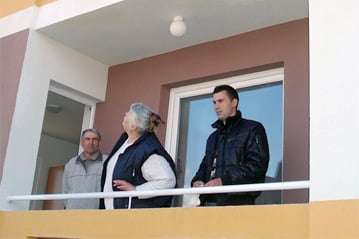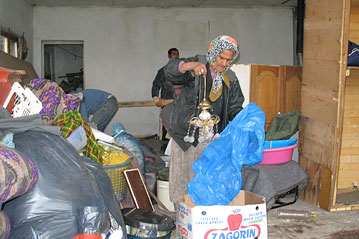Ethnic minorities in Kosovo still face many problems, says report
Ethnic minorities in Kosovo still face many problems, says report

GENEVA/PRISTINA, March 10 (UNHCR) - Kosovo's ethnic minorities continue to face security problems and lack access to basic services, three and a half years after the province was placed under a UN administration.
An assessment report released today and carried out jointly by UNHCR and the Organisation for Security and Co-operation in Europe (OSCE) says that despite progress in many areas, Kosovo's ethnic minorities lack access to education and health services. The study also says ethnic minorities, primarily ethnic Serbs and Roma, find it much harder to get jobs.
The report notes that one key concern is the lack of freedom of movement for the minorities, which affects their ability to lead normal lives. It says their access to health and education depends on their ability to travel freely and safely throughout the province. The report also expresses concern about the minorities' lack of property rights.
The assessment has found that after three internationally supervised polls, in which Kosovo's residents have chosen their own municipal and central leadership, fair and equitable treatment of minorities remains problematic in many areas. The report urges Kosovo's provisional government and legislative authorities to pass an OSCE-backed Anti-discrimination Law that lays foundations for the equitable treatment of Kosovo's minorities.
"Inter-community dialogue, confidence-building measures, commitment of the local authorities and a bottom-up approach represent key elements for improving the conditions of Kosovo's minorities," said Walter Irvine, UNHCR's top official in Kosovo.
The report - the 10th such assessment in four years - says the improvement in the overall situation of Kosovo's minority communities has not been "fundamental enough" to allow a large-scale return to the province of minority Serbs and Roma.
An estimated 200,000 people fled Kosovo in mid-1999 as Serbian forces withdrew from the province in the wake of a NATO-led bombing campaign against Serbia. Only a small number have since trickled back to Kosovo, where ethnic Albanians represent an overwhelming majority.








